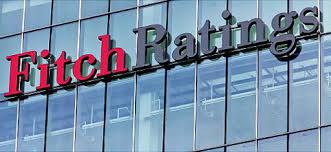
Another global credit ratings agency, Fitch, has upgraded Ghana’s economy following that from Moody’s in less than a week, placing the country in a positive position that will stimulate economic growth.
Fitch upgraded the country’s Long-Term Local-Currency Issuer Default Rating (IDR) from ‘CCC’ to ‘CCC+’.
It also assigned Ghana’s new US dollar bonds, issued on October 9, 2024, a ‘CCC+’ rating.
Regarding outlook, Fitch noted that it typically did not assign outlooks to IDRs of sovereigns with a rating of ‘CCC+’ or below.
Last Friday, Moody’s upgraded Ghana’s long-term local and foreign currency issuer ratings to “Caa2” from “Caa3” and “Ca,” respectively.
The agency cited extensive debt treatment that has significantly alleviated the government’s financial burdens.
It also revised Ghana’s outlook from “stable” to “positive.”
Fitch ratings
Like Moody’s, Fitch cited the country’s extensive debt restructuring efforts, particularly the recently completed Eurobond exchange, which has significantly reduced financial pressures on the government.
Despite the challenges, the upgrade to ‘CCC+’ is seen as a positive signal of Ghana’s ability to navigate its economic recovery, with reduced risks of future defaults and a clear path to fiscal stability.
Ghana’s economy is now experiencing a significant recovery beyond the expectation of the global rating agencies and institutions as a result of government’s diligent negotiations with its local and international partners on debt crisis.
The country’s economy had been devastated by major external factors such as COVID-19 pandemic and Russian-Ukraine war that had affected all global economies.
Reduced liquidity pressures
Fitch attributed the upgrade to Ghana’s success in its debt restructuring process, which has eased financial burdens on the government.
The restructuring has unlocked access to concessional international financing and is expected to reduce liquidity pressures, especially with favourable macroeconomic developments like lower inflation contributing to lower local currency financing costs.
“The upgrade of Ghana’s LTLC IDR to ‘CCC+’ reflects our increased confidence that the likelihood of another default on Ghana’s local currency debt is being reduced with the completion of the Eurobond restructuring,” Fitch noted.
Successful Eurobond exchange
As part of the debt restructuring process, Ghana successfully concluded a debt exchange for its 15 non-performing Eurobonds.
This exchange saw the issuance of five new bonds to replace the 15 outstanding ones, reducing Ghana’s foreign currency debt stock by approximately 6% of the estimated 2024 Gross Domestic Products (GDP).
The Eurobond exchange, completed on October 10, 2024, also reduced Ghana’s debt service obligations by $3.5 billion over the 2024-2026 period, with significant reductions in interest payments projected through 2026.
Long-term outlook & fiscal stability
Fitch has projected a decline in Ghana’s central government debt from 77% of GDP in 2023 to 70% in 2024 and 68% in 2025 and 2026.
This reduction is expected to be driven by ongoing fiscal consolidation efforts, including a strong medium-term growth forecast.
Despite these positive developments, Fitch retained the Long-Term Foreign-Currency IDR at ‘RD’ (Restricted Default) due to Ghana’s ongoing default on some of its external commercial debt. The ratings agency, however, expects the country to complete its external debt restructuring by early 2025.
IMF Programme
Fitch also highlighted the Ghanaian government’s commitment to its extended credit facility programme with the International Monetary Fund (IMF).
On October 4, 2024, Ghana reached a staff-level agreement with the IMF on the third review of the facility, unlocking $360 million in funding.
While Fitch acknowledged the government’s strong commitment to the IMF programme and fiscal consolidation efforts, it raised concerns about potential fiscal slippage in the lead-up to the December 2024 elections, though the risk is considered low.
Primary surplus
As Ghana continues its debt restructuring and fiscal consolidation efforts, Fitch expects the country’s primary surplus to rise to 0.9% of GDP by 2026, signalling an improved fiscal outlook.
Interest payments
The agency also estimates that interest payments will represent 29% of revenue in 2025 and 31% in 2026, above the average for countries in similar credit rating categories.





